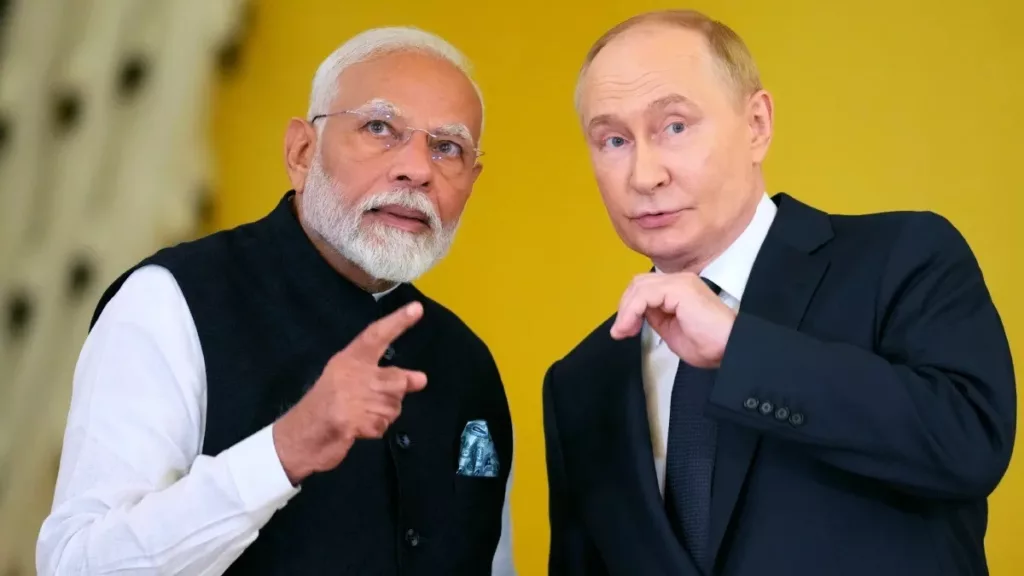In a move underscoring its unwavering commitment to national energy security and economic pragmatism, India has reiterated its intention to continue importing crude oil from Russia. This stance comes amidst persistent threats from the United States, particularly from President Donald Trump, who has announced fresh tariffs on Indian goods and hinted at additional penalties specifically targeting India’s robust energy and military ties with Moscow.
The Latest Development: India’s Unchanged Stance
Despite recent claims by President Trump that he had “heard” India would cease buying Russian oil, official sources within the Indian government and the Ministry of External Affairs (MEA) have firmly refuted such suggestions. Speaking to reporters, MEA spokesperson Randhir Jaiswal emphasized that India’s decisions regarding its energy requirements are solely guided by “the price at which oil is available in the international market and depending on the global situation at that time.” He added that the relationship between India and Russia is “steady and time-tested” and should not be viewed “through the prism of a third country.”
This clarification comes after President Trump’s announcement of a 25% tariff on Indian exports, effective August 1, 2025, coupled with an “additional penalty” for India’s ongoing purchases of Russian military equipment and energy. Trump has been vocal on social media, expressing displeasure over India’s trade with Russia, even suggesting the two nations could “take their dead economies down together.”
Economic Imperative: The Discounted Russian Crude Advantage
India, as the world’s third-largest oil importer and consumer, has significantly altered its energy sourcing strategy since February 2022. Prior to this, Russian oil constituted less than 0.2% of India’s total crude imports. However, in the wake of Western sanctions on Moscow, India swiftly capitalized on heavily discounted Russian crude, which at one point accounted for nearly 40% of its total crude intake.
This strategic shift has provided substantial benefits to the Indian economy, enabling it to:
- Reduce overall energy import costs: Access to discounted oil has saved India billions of dollars. Analysts suggest that moving away from Russian crude could increase India’s annual oil import bill by an estimated USD 9-11 billion.
- Keep retail fuel prices in check: Lower import costs translate to more stable domestic fuel prices, mitigating inflationary pressures.
- Boost refining profits: Indian refiners have reaped record profits by processing discounted Russian crude and then exporting refined petroleum products, sometimes even to countries that have sanctioned direct imports from Russia.
While some state-run refiners reportedly paused spot market purchases of Russian crude recently as discounts narrowed, major private refiners like Reliance Industries and Nayara Energy, which procure crude on a term basis, are expected to continue their imports. Experts point out that replacing Russian barrels entirely would be “logistically daunting, economically painful, and geopolitically fraught.”
Geopolitical Calculus: Navigating Complex Relationships
India’s steadfastness on Russian oil imports is rooted in a nuanced foreign policy that prioritizes national interests while navigating a complex global landscape. The long-standing, “time-tested” partnership with Russia, particularly in defense cooperation, remains a crucial element of India’s strategic autonomy. India has historically relied on Russia for a significant portion of its military equipment, often receiving favorable terms and access to sensitive technologies not readily available elsewhere.
The Indian government has consistently maintained that its trade decisions are independent and not subject to external pressure. This aligns with India’s broader foreign policy principle of non-alignment and maintaining strategic autonomy in its international dealings. The current administration has clearly signaled its commitment to protecting the welfare of its farmers, entrepreneurs, and MSMEs, asserting that any trade deal must serve India’s national interest.
The Road Ahead: Balancing Interests
The ongoing tension highlights the delicate balance India seeks to maintain between its strategic partnership with Russia and its growing economic and defense ties with the United States. While the US continues to exert pressure through tariffs and warnings, India’s robust domestic demand and its imperative to secure affordable energy sources at a time of global volatility will likely continue to shape its decisions.
The situation underscores the challenges of unilateral economic coercion in a multipolar world, where countries like India are increasingly asserting their sovereign right to make trade decisions based on their own economic realities and strategic needs. As global energy markets remain dynamic, India’s pragmatic approach to oil procurement is expected to remain a cornerstone of its economic policy.







